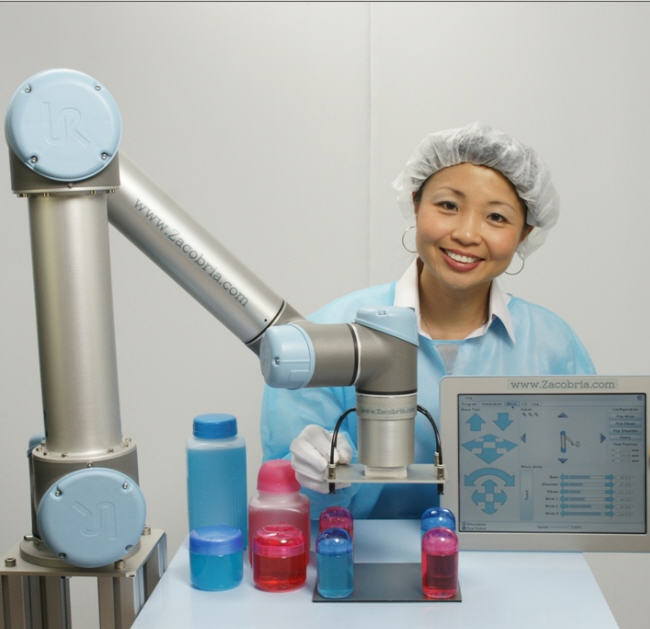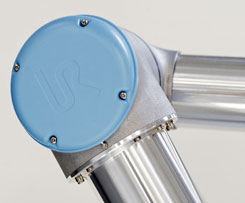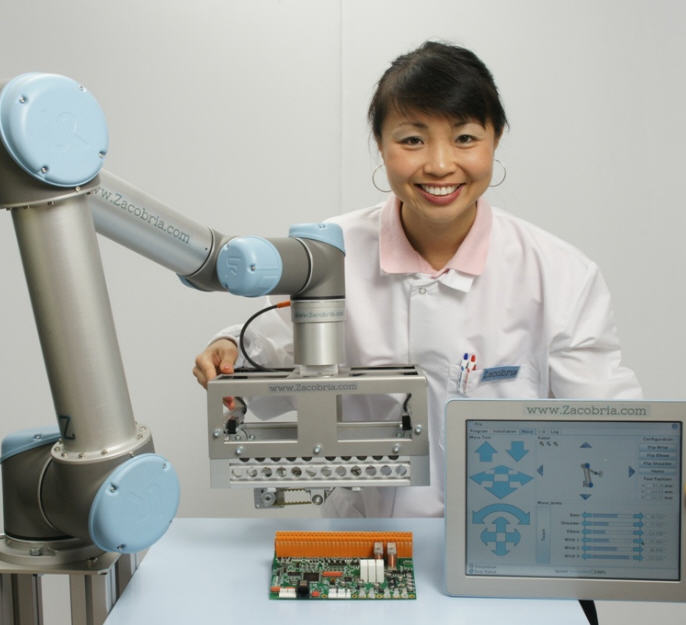
Accredited 2015-2018 Universal-Robots support Centre and Forum. MiR Service & Support Centre.
Home | About | Products | Case Stories | Applications | Control | Service | Contact
Singapore
info@zacobria.com | Sitemap | AP map | Disclaimer
Zacobria Profile Singapore.

Zacobria Pte. Ltd. is based in Singapore and focus on support to industrial automotion and robotics.
Zacobria Pte Ltd and our sister company Esmap Services Pte Ltd are established by Lars Skovsgaard in Singapore who have 40 years of experience in Electronics and Automation as follows:
8 years of working experience at LEGO Systems IT department as electronic engineer.
10 years at Crisplant A/S, a provider of high speed automation solutions used world wide commonly at airport baggage handling systems.
Since 2002 permanently based in Singapore with the Asia Pacific region as working area serving companies such as:
Crisplant Beumer.
Universal-Robots (UR).
Mobile-Industrial-Robots (MiR).
Robotiq.
Vetec (Nordtech) Weighing Solutions.
Work Experience:
40 years experience in component level support
30 years automation experience
20 years permanent based in Asia pacific
10 years Robotics experience
Business experience
Director and Business owner
Sales PL and accounting
Contract negotiations MNC and GLC
Customer Support
Role experience
Service Manager Project Manager
Technical Supporter
24/7 Hotline Supporter (WW)
Commissioning engineer
Field Service engineer
Training performer
Technology experience
Electronic circuits, Computers, Microcontrollers
Data Communication RS-485 USB
MODBUS TCP
Ethernet TCP/IP
System Platform experience
Linux Ubuntu
Windows & MS Office
Jira
Programming experience
Python
ReST API & Postman
Robot arm programming
AMR Mobile Robot programming
HTML and Web design
Product experience
Universal-Robots (UR)
Mobile-Industrial-Robots (MiR)
Vetec
London Electrics
Sick
3D cameras and vision systems
Sensors
Segment experience
Robotics Automation
Autonomous Mobile Robots
Loadcells
Displays
Wireless Radio Communication
Lidar Laser scanner
3D cameras Camera and vision systems
Sensors Photo & Proximity sensors etc.
Countries served
Singapore Korea Japan China Malaysia Indonesia Thailand Vietnam Taiwan Philippines Australia New Zealand India


Obtain an ROI (return on investment) within 1 year through the utilisation of a Universal robot arm and automation from Zacobria.
Singapore encourages local-based companies to create mechanised and automated work environments to keep a highly educated and skilled workforce as well as workplaces for it in Singapore.
Efforts to this purpose have been made by way of tax policies that benefit local companies who introduce mechanisation and automation, and by way of allowing accelerated capital allowance for most assets used for business purposes.
The Productivity and Innovation Credit (PIC) scheme has been introduced in the Singapore Budget to encourage productivity and innovation, by providing enhanced tax incentives for investments in a wide range of activities, such as automation equipment and training of employees.
Encouraging productivity and innovation.
The Singapore Productivity and Innovation Credit (PIC) scheme offers a 400% tax deduction on up to 400,000 SGD of your investment, or a cash payout option of up to 30% of your 100,000 SGD investment.
Lab Automation.
Laboratory processes are suited for robotic automation as the processes are composed of repetitive movements (e.g. pick/place, shaking, and testing).
Automation and robotics are increasingly freeing scientists from the need to constantly monitor their experiments. Introducing automation increases productivity, reduces laboratory costs, and provides individual researchers with more time for creative purposes.
Researchers are making steady progress, advancing their science with new tools and systems that can prepare samples and run experiments.
Automation of routine laboratory procedures and fully functional robotic systems can turn jobs once done manually during an eight-hour shift into procedures that require very little human intervention, and that operate (at least in theory) 24 hours a day, 7 days a week, 365 days a year. Simple, repetitive tasks can be automated.
Free uptime for workers.
Automation and the ever increasing number of robotics have transformed the typical workday for many individual workers.
Advantages using Industrial Robots.
Faster processing (notice that automation is not always faster than a human operator)
Increased repeatability
Increased productivity
Improved efficiency
High reproducibility
Establish safer working environments
Reduction in materials wastage due to optimised process variables
Ability to perform work continuously unaffected by human constraints
Ability to perform work in and around harsh environments
Withdraws staff from monotonous, repetitive tasks
Author:
By Zacobria Lars Skovsgaard
Accredited 2015-2018 Universal Robots support Centre and Forum.
Mir Mobile-Industrial-Robots Service and Support Centre.

Home | About | Products | Case Stories | Applications | Control | Service | Contact